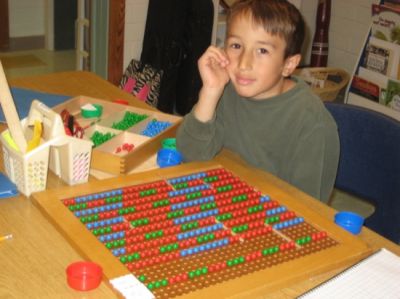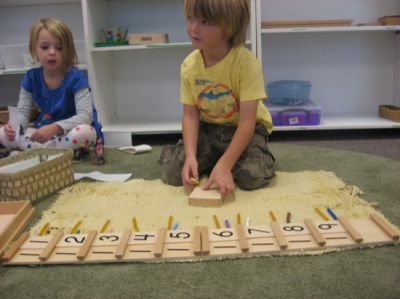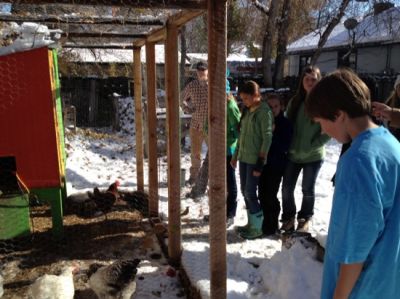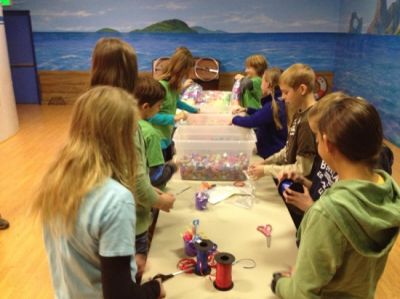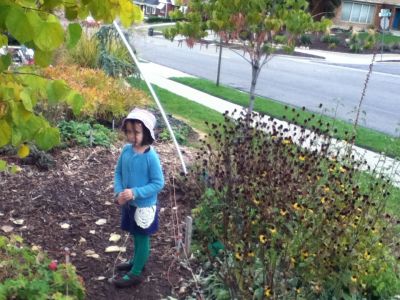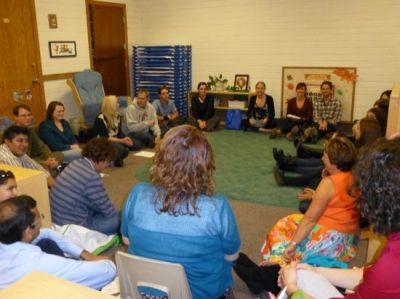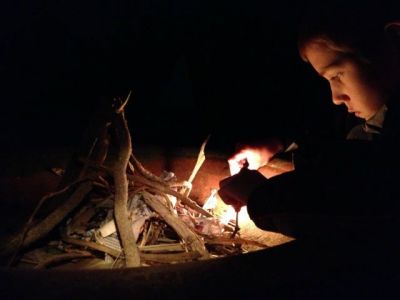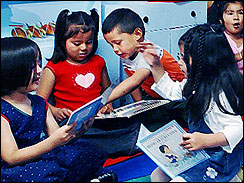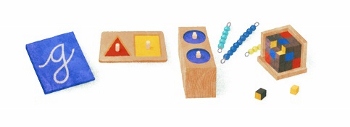Practical Life is an essential part of the Montessori curriculum. Students begin as early as 18 months old working on daily living skills. The areas of a Practical Life environment include; care of self, care of environment, grace and courtesy, and control of movement. Activities are carefully designed to not only prepare the child to LITERALLY become independent in all areas but also to develop the mathematical and language areas of the brain. This is accomplished when a teacher in the environment sets up each activity and presents it methodically, paying careful attention to every detail. For example, a lesson on table washing would be presented to a child starting to scrub the table at the top-moving from left to right and top to bottom. The child moves cross-body as their washing hand literally crosses from the left side of the body, past the center, and to the far right, preparing the brain for reading. This also increases cross lateral movement which not only works as a pre-reading skill but also increasing coordination.
This student chops fruit for a smoothie she will share with her classmates.
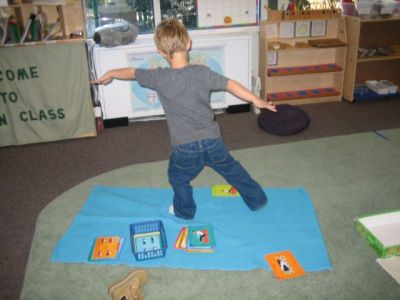
This student practices yoga as part of the Practical Life curriculum. His focus centers on building concentration and coordination, two important elements of Practical Life.
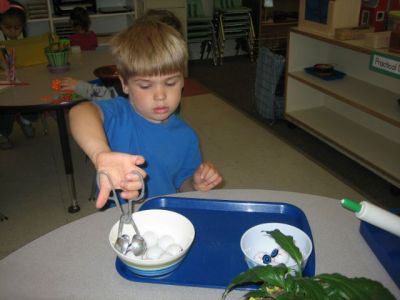
This boy works on transferring objects from bowl to bowl; building concentration, coordination, and order while also developing small muscle control, an essential part of writing preparation.
All of the activities in a carefully prepared Practical Life environment allow the child to build multiple skills. For example a child working on sorting objects, stringing beads or tweezing objects is repeatedly practicing and preparing their prehensile grip. Anybody who has ever spent time with children inside the home can relate to the young child’s desire to participate in household chores…dishwashing, food preparation, sweeping, mopping…the list goes on and on. In a Montessori classroom, children have the opportunity to practice these skills along with many others in an effort to gain independence. They might repeat activities over and over, building their ability to concentrate, as they become more efficient at each skill.
As children move on to elementary and beyond, practical life becomes more about participating in real life situations. They work together as community members to maintain the learning environment, oftentimes extending the learning environment to areas outside the classroom. They take the practical life skills that they so carefully and repeatedly practiced in their younger years to become contributing members of their classroom and school community. As parents understand the skills that their children have worked so hard to acquire, they too can invite children to work as contributing members of their household.
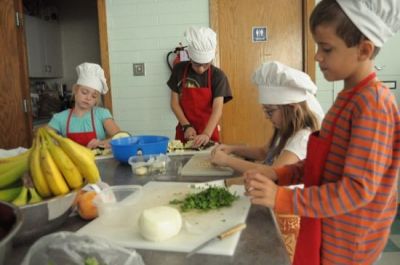
Lower Elementary students work in the kitchen.
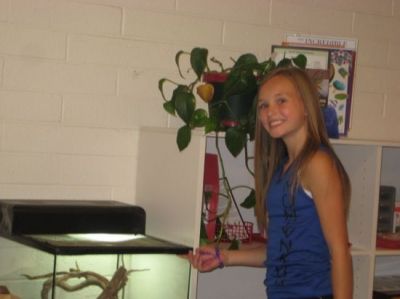
This Upper Elementary student cares for Murphy, the corn snake, in her classroom.
Beyond the elementary experience, children at MCS take their practical life skills to the next level as Middle Schoolers in planning, preparing, and carrying out classroom and community events. Join us in the lobby every last Thursday of the month for Montessori Market, an event organized by the Middle School students. Students learn the steps in building and maintaining a business as they work together as a team, increasing their opportunities for appropriate and essential social interaction.
“The exercises of practical life are formative activities, a work of adaptation to the environment. Such adaptation to the environment an efficient functioning therein is the very essence of a useful education.” Maria Montessori
Check back for more information coming later in how you can organize your own home to support the Practical Life curriculum in your child’s Montessori classroom.
